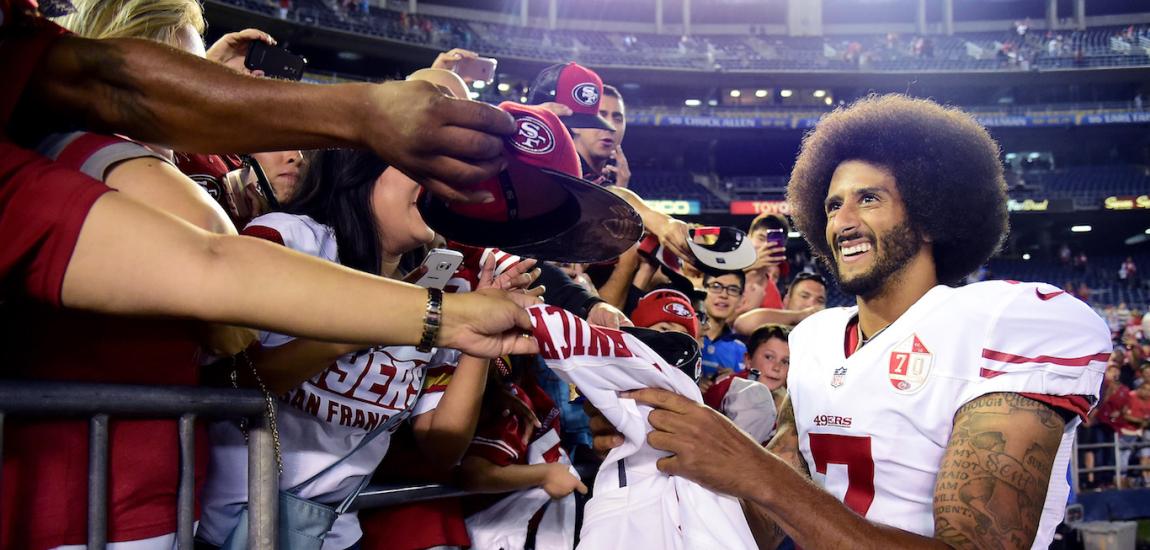We learned this week that FBI undercover agents have been investigating college basketball for two years, and they found everything the NCAA has largely failed to find for decades: coaches paying top recruits through shoe companies.
The investigation is ongoing, and the results are only now starting to roll out, so we still have more questions than answers. But we can already be certain of a few things.
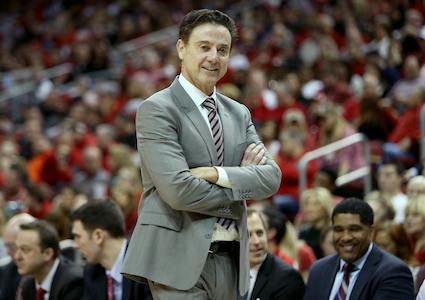
Assistant coaches at USC, Arizona, Auburn, and Oklahoma State were arrested on corruption charges. Not questioned about potential cheating, the way the NCAA does it. Arrested.
The FBI is also going after the schools themselves, including South Carolina and Louisville, whose head coach, Rick Pitino, won the NCAA title over Michigan in 2013. When the news broke, Pitino released a statement saying he was "shocked" by the allegations. He really said that, giving pundits no choice but to invoke the famous line from Casablanca about being "shocked, shocked to find gambling" at Rick's Café.
If that shocked Pitino, he must have been positively flabbergasted the next day when Louisville let him go, and his boss, the athletic director. But if Pitino was stunned, no one else was.
The FBI isn't just going after people working for basketball schools, which is all the NCAA could do anyway. The FBI also arrested a top executive at Adidas, Jim Gatto. Again, arrested. One suspects there are many more arrests to come.
At a news conference in Manhattan, acting U.S. Attorney Joon H. Kim sent a message to coaches and shoe company employees not named in their initial report: "If you yourself engaged in these activities," he said. "I'd encourage you to call us. I think it's better than us calling you."
If there is an award for wry understatement, I hope Mr. Kim wins it.
We'll learn more names and charges soon enough. But we can also take away some general conclusions.
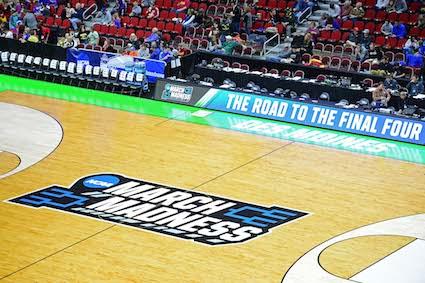
For one, the FBI is every bit as serious about corruption as the NCAA is not. True, the NCAA does not have subpoena power. But this FBI investigation, conducted in only two years, shows just how willfully blind the NCAA's investigators have been to the rampant corruption occurring under their noses every day. So blind, the FBI – which has bigger things to worry about these days – felt it necessary to do the NCAA investigators' work for them, and do it far better.
Why have the NCAA's investigators been so ineffective? The NCAA started in 1905 as a simple governing body, designed to ensure athletes were safe, and they were actual students and bona fide amateurs. That's why the NCAA had no problem busting City College of New York for point-shaving in 1951, just one year after winning the national title.
But once the NCAA started making millions, then billions, off its annual basketball tournament, it added to its original role of town sheriff the far more lucrative position of saloon keeper. You can guess how eager the sheriffs were to find violations in their own saloons.
Since then, the NCAA rarely takes any action unless investigations by journalists or law enforcement embarrass them badly enough to follow up.
NCAA President Mark Emmert, who has seemed incapable of shame despite enduring numerous good reasons for it during his seven-year tenure, released a statement designed to exonerate the NCAA, which unwittingly made it look far worse.
"We have no tolerance whatsoever for this alleged behavior," he wrote.
That is false on its face. The NCAA has tolerated all this alleged behavior and many others for years. If the NCAA had done anything about it, the FBI wouldn't have had to.
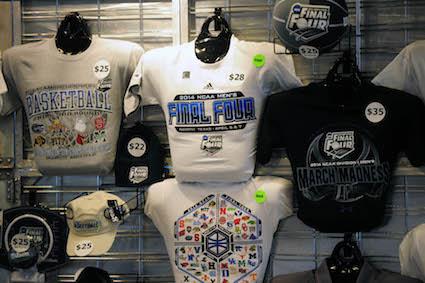
Emmert concluded, "We learned of these charges this morning and of course will support the ongoing criminal federal investigation."
No doubt Emmert thinks this last line makes the NCAA look like an eager, serious governing body. But if they really did just learn of the charges that morning, they're even more willfully incompetent than we had imagined. If they did know some or most of what was going on, which seems more likely, it says something that they chose to ignore it until the FBI investigation forced them to face it. And it says even more than the FBI felt it necessary to keep the NCAA in the dark throughout the investigation, treating the NCAA not as reliable partners in pursuit of wrong-doing, but untrustworthy collaborators.
Oh, and while it's nice of President Emmert to offer the NCAA's support to the FBI, the FBI hasn't needed it for the first two years of this investigation, and it doesn't seem to want it, either.
This FBI investigation might be the dynamite needed to finally blow up the NCAA – or at least the corrupt regime currently running things. If it is, many are calling for the end of amateur college athletics, which they feel are a charade, and start paying athletes openly, without all the shady back-dealing.
I can certainly understand why they feel that way, and there's plenty of evidence to support that position. But I'm convinced it would be a lot more complicated, and not nearly as effective, than proponents think. Further, until basketball and football players have what baseball and hockey players have had for more than a century, a viable minor league for those who want to be paid and don't want to be students, giving those athletes no option other than college sports will never work very well.
And, for all the cynicism, I've seen above-board college athletics done too well too often not to believe it can be done nationwide, having researched the student-athletes at Penn State, Michigan, Northwestern and Notre Dame, among others, for my books.
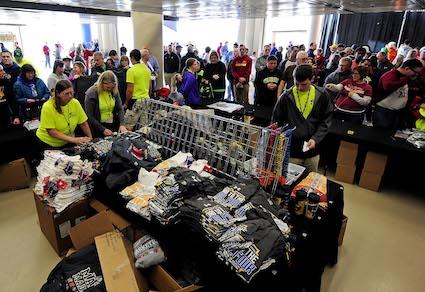
Lost in all this was a little survey conducted a month ago by CBS, which asked more than 100 college coaches who was the cleanest coach. Michigan State's Tom Izzo finished a highly respectable sixth, and Michigan's John Beilein finished first.
Izzo has led his Spartans to the Final Four seven times, and fell short six times – often losing to the programs the FBI is now investigating.
In 2013, Beilein's Michigan squad lost in the final game to, yes, Rick Pitino's Louisville squad.
Perhaps the fans of Michigan State and Michigan now view their runner-up trophies in a better light.
John U. Bacon is the author of five New York Times best sellers. His latest is Playing Hurt: My Journey from Despair to Hope with the late John Saunders. He gives weekly commentary on Michigan Radio, teaches at the University of Michigan and Northwestern's Medill School of Journalism, and speaks nationwide on leadership and diversity. Learn more at JohnUBacon.com, and follow him on Twitter @johnubacon.




